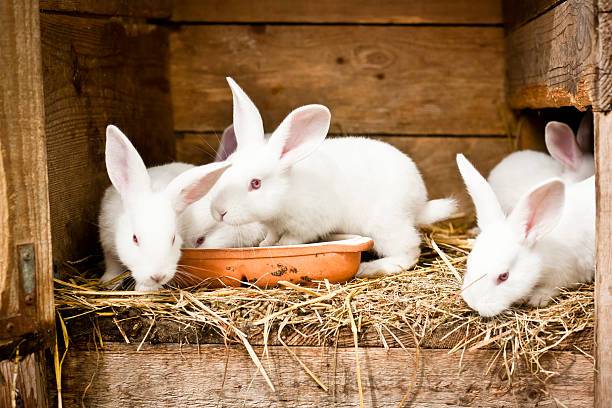Rabbit farming, also known as rabbitry or cuniculture, can provide several benefits to individuals and communities. Here are some potential advantages of rabbit farms:
Meat production: Rabbit meat is lean, low in fat, and has a high protein content. It is considered a healthy and nutritious meat option. Rabbit farming allows for sustainable and efficient meat production, providing a source of high-quality protein for human consumption.
Reproduction rate: Rabbits have a high reproductive rate, with short gestation periods and large litter sizes. A single pair of rabbits can produce multiple litters per year, resulting in a rapid increase in the population. This makes rabbit farming a potentially profitable venture due to the quick turnover of animals.
Space and cost-effective: Rabbit farming requires relatively less space compared to traditional livestock farming. It is suitable for both rural and urban areas, as rabbits can be raised in small backyard spaces or in specialized indoor systems. The initial investment and maintenance costs for rabbit farms are generally lower compared to larger livestock operations.
Efficient feed conversion: Rabbits are highly efficient in converting feed into meat. They have a feed conversion ratio (FCR) that is better than most other livestock, meaning they require less feed to produce a pound of meat. This efficiency can result in cost savings on feed expenses.
Fertilizer production: Rabbit manure is an excellent source of organic fertilizer. It is high in nitrogen, phosphorus, and potassium, making it beneficial for soil enrichment and crop production. Rabbit farms can utilize the manure as a natural fertilizer, reducing the need for synthetic alternatives and promoting sustainable agriculture practices.
Fur production: Some rabbit breeds are specifically raised for their fur, which can be used in the textile industry. The fur is soft, warm, and versatile, suitable for making clothing, accessories, and fur products. Fur farming can be an additional income stream for rabbit farmers.
Educational and research purposes: Rabbit farms can serve as educational platforms for schools, colleges, and research institutions. They provide opportunities for learning about animal husbandry, reproduction, genetics, and other related topics. Rabbit farming can also support scientific studies and experiments conducted in the field of biology, veterinary medicine, and genetics.
Pet industry: Rabbits are popular as pets due to their small size, gentle temperament, and low maintenance requirements. Rabbit farms can supply healthy and well-socialized rabbits to pet stores, breeders, and individuals looking for companion animals.
It's worth noting that like any farming endeavor, rabbit farming requires proper knowledge, management, and care to be successful. Regulations and guidelines regarding rabbit farming may vary across regions, so it's important to familiarize yourself with local laws and best practices before starting a rabbit farm.




No comments yet
Be the first to share your thoughts!